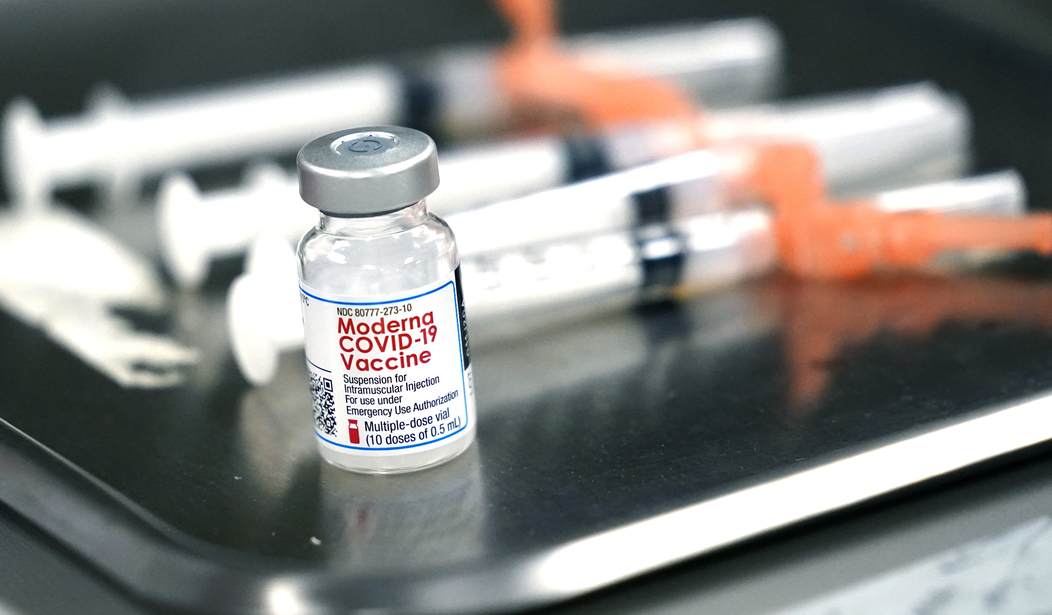Panic over the Delta variant has driven at least 1.1 million people to get a third Pfizer or Moderna booster shot, according to an internal document from the Centers for Disease Control (CDC), which ABC News has reviewed. The estimate is likely higher, especially if people have gotten a second dose of the Johnson & Johnson vaccine. The Food and Drug Administration (FDA) has not yet approved such a booster.
Even though there has yet to be such approval, ABC reports it's possible these people have gotten their booster under the direction of a doctor:
It’s also unclear whether people who received a third shot did so under the direction of a doctor. The Food and Drug Administration hasn’t authorized a third shot to boost immunity, although there are reports of some physicians encouraging severely immunocompromised patients to do so.
Stephanie Douglas for local news outlet KOSA reported on Monday that the Midland Medical Lodge in Midland, Texas was administering such booster shots. "Some of our residents and staff are receiving the 3rd Pfizer vaccination with physician order and vaccine consent,” said Midland Medical Lodge," was all the statement from the facility to the news outlet read.
The CDC has gone back to once more advising people to wear masks indoors in certain areas, even if they have already been vaccinated. The CDC also recently released guidelines for students, staff, and teachers in K-12 schools to wear masks, regardless of vaccination status. Mask mandates for children has been something of a hot topic as of late.
The CDC and Dr. Anthony Fauci still maintain though that vaccines work when it comes to protecting from the virus and from its variants.
Recommended
Alexandra Chaidez included statements from multiple doctors in her reporting for The Boston Globe. Not enough is known about the boosters yet. As Chaidez wrote:
The science isn’t there to support booster shots now
For most people, there is no concrete data available that studies the effectiveness of boosters, doctors say. People will have to wait until the fall for any official recommendations on booster shots as clinical trials continue, they added.
Dr. Daniel Kuritzkes, the chief of the division of infectious diseases at Brigham and Women’s Hospital, said doctors need to know more about the efficacy and logistics of boosters.
“You can certainly increase antibody levels by boosting — whether that actually results in better protection and when the right time to boost might be is completely unclear,” he said.
Siedner said that there is no data now that shows booster shots are “actually helpful” to the general population who develop immunity after a normal dose of the vaccines.
Doctors stress that people still need to wait and allow others to get their preliminary shots.
“It’s very possible that things like the Delta variant do change the equation . . . and boosters are needed,” Siedner said. “I think there’s a very strong likelihood that will be the case in the future, but right now the best way to stop people from getting sick and to stop new variants like the Delta or potentially even more variants from emerging is making sure people get one and two shots, not making sure people get a third shot.”
Approval for a booster vaccine may be recommended in the coming days for the immunocompromised, even as early as Thursday, as NBC News reported. Whether or not there is a medical necessity for it is not the only topic for conversation, though.
Those such as Dr. Tedros, the director-general of the World Health Organization (WHO), have called for a pause on wealthy countries administering booster shots until at least 10 percent of the population of every country is vaccinated.
"The organization’s recommendations are not legally binding, however, and wealthy countries are not expected to undo their plans," Cassidy Morrison reported for The Washington Examiner.

























